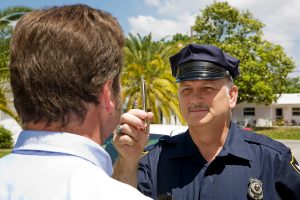Officers use field sobriety tests (FSTs) as a strategy to determine whether to arrest a driver for driving under the influence. FSTs gather evidence against the driver about:
- Balance
- Coordination
- Attention
So, can you can refuse a field sobriety test in California without consequence?
Refusing a Field Sobriety Test in California
In California, there is no law against refusing a field sobriety test. The officer will not tell you this. Likely, the officer will make it seem like you must take the tests.
Know that you have the right to refuse these tests without penalty. If you do choose to participate, the results may be used against you in court. Due to the inherent flaws of field sobriety tests, it may be in your best interest to refuse them.
Are There Issues With Field Sobriety Tests?
Several sobriety tests check for the ability to control physical movement while following instructions. Since information gathered from an FST can be used against you, it may be beneficial to refuse one. This is especially true if you have poor balance, move when nervous, or have difficulty concentrating.
Sobriety tests are unreliable in several ways. Many of the symptoms caused by alcohol are also caused by fatigue, low blood sugar, or being nervous. In addition, the following factors can affect the results:
- Medications
- Injuries or medical problems
- Environmental conditions
- Age and weight
- Officer error
Furthermore, these tests rely on a police officer’s subjective judgment. If they have pulled you over, they already believe that you are under the influence. Anything you do will likely confirm their beliefs.
Can I Refuse a Blood or Breath Test?
California, like many other states, has an implied consent law. By having a license and operating on California roads, you imply consent to chemical testing after a lawful arrest. Chemical testing can include a breath, urine, or blood test.
Note the language of the law carefully. You must take a chemical test AFTER an arrest. You do not have to take a breath, blood, or urine test before an arrest.
Refusing to submit to a chemical test after a DUI arrest has immediate consequences. These consequences include:
- Mandatory license suspension for at least one year
- Potential jail time
- Stiffer DUI penalties if convicted
Under Vehicle Code 23612, the officer must advise you correctly in order to have a suspension stand. Our San Jose DUI lawyer can determine whether you were properly advised. If you were not, we can take the necessary steps to prove it.
Do Not Fight Your California DUI Charge Alone
In California, you face an uphill battle after a DUI arrest. Put your case in the hands of a DUI attorney with substantial experience defending drivers. Contact our San Jose DUI attorney to discuss your legal needs. Call us at (408) 898-9770 or contact us online.


